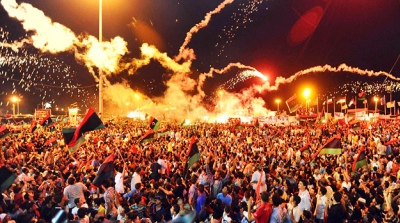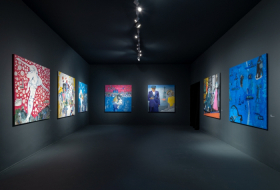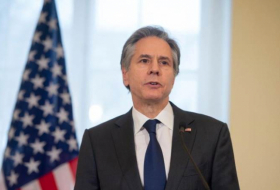Given the fact that German political scientist Klaus von Beyme has described the democratic transition process of the former soviet states as the fourth wave of democratization, some scientists are characterizing the “Arab spring” as the fifth wave. However, in his article S. Huntington asserted that democratic processes in former Yugoslavia, Czechoslovakia and also Poland that emanated in the aftermath of the diminished Soviet influence over the Eastern Europe, were indeed a component of the third wave. Moreover, in his article published in 1996, he has included the democratic transition of the newly independent states emerged upon the collapse of the Soviet Union into the third wave (4). Indeed, it would be correct to regard the continuously occurring democratization process in Eastern Europe and the post soviet space as the integral element of the third wave. Thus, the revolutions that have engulfed the countries in Northern Africa and some Arab states of the Middle East may be considered a fourth wave of democracy.
The “Arab Spring” – countries drawn closer to democracy or alienated?
Processes that lead to consecutive toppling of dictators in the Arab states and ascend to power of new forces raise only one question with the international community – are indeed the processes in the Arab world aimed at the establishment of the democracy or it is the fake democratization that leads to empowering of new dictators and authoritarian regimes.
The reason for such a question to arise and to be voiced so frequently is the apparent situation in those countries. Let us briefly evaluate the present situation in four Arab states where authorities were ousted in the aftermath of the “Arab spring”.
Initially, after the resignation of the Tunisian President Zine El Abidine Ben Ali in the wake of public protest in January 2011, elections were held in May to form a council for drafting the new constitution. Three moderate Islamist parties lead by “Ennahda” party, that claimed the majority of the votes, have formed the transitional government. However, Tunisians still disgruntled by the social-economic situation, stage rallies from time to time, while liberals and radical Islamists step up the pressure upon the government. Political struggle would arguable aggravate in the run up to the parliamentary and presidential elections scheduled for autumn of 2013.
Clashes and armed confrontation in Yemen that started in January 2011 forced the country’s President Ali Abdullah Saleh to resign and new elections to be held on 21 February 2012, where the only available candidate, Mansur al-Hadi, won the ultimate prize. He will oversee the drafting of the new constitution, while Yemen prepares for the parliamentary and presidential elections in 2014.
Situation in Egypt is far more complicated. In the aftermath of the Hosni Mubarak’s ousting from power, liberals and religious minorities are presently discontent with the election of “Muslim brotherhood” affiliated “Freedom and Justice” party’s representative Mohamed Mursi as the country’s President, and party’s dominance in the country’s parliament. The Islamists, liberals, and Christians are yet to reach consensus on the variety of issues related to domestic and foreign policy.
Libya obviously became a country to suffer the most painful revolution. The country is governed by the interim authority in the wake of a regime change caused by the bloody civil war and foreign military intervention. Contrary to the expectations, liberals won the parliamentary elections held in summer 2012. Such problems as clashes between the armed groups, disobedience to central government, and strengthening of separatism and of the al-Qaeda’s positions nevertheless persist.
Revolutionary has stumbled in Syria. As the war rages between the opposition, benefiting from foreign military and economic aid, and government forces and its supporters the outcome is beyond prediction. Common feature of the Arab states that have seen regime changes in the aftermath of a revolution are the incompletion of political transition, resulting in relative weakness of the central government, political and social instability and deterioration of the economic situation.
Another characteristic aspect pertaining to each of those countries is the lack of assurance that the post-revolutionary political processes are to deliver the ultimate democratic victory, due to the presence of both domestic and foreign factors that impede the overall democratic developments.
How favorable are the conditions for the Western democracy in the Arab states?
According to the American political scientist Huntington, political, economic and cultural factors are a must for the establishment of democracy (5). Revolutionary wave has swept the dictators from power in the Arab states during the last two years and created new picture in terms of political authority. However, the situation is different with regards to the economic and cultural factors. Failure of the revolution to deliver the desired results articulates the question regarding the degree of preparedness of a given country to embrace democratization.
Commonly perceived, the key matters that served as an impetus to the rapid spread of the revolutionary wave were the economic problems and impoverished masses. Although the countries that have experienced the “Arab Spring” had high per capita income indexes, in reality the populations’ wellbeing was relatively poor (except Libya), and insufficient industrial development and dominance of the agriculture were pertaining features of the respective economies.
According to the research of the Western political scientists, economic lagging and poverty are detrimental to the emergence of the democracy friendly environment, because democracy is closely linked to economy. Democracy theorists are convinced that economic modernization is central to the success of the democratic principles in the society. Economic modernization leads to the augmentation of the people’s wellbeing and the quality of education; the ultimate environment where people are keen to defend their rights for descent life and self-assertion. Huntington believed that the majority of wealthy and developed nations are democratic, whilst most of the democratic countries are prosperous. He believed that impoverished country is not the best environment for democracy to flourish (5). Francis Fukuyama disagrees and asserts that economic situation and cultural contradictions are not crucial, that democracy needs democrats (2).
However, common perception is that nations with advanced economies stand better chance of establishing and preserving democracy, because frequently democracy is helpless in the face of economic hardship. That is the ultimate environment for dictatorships to thrive (1). Seymour Lipset, an American political sociologist, considered democracy to be a product of an economic development. He had conducted a research comparing the economic development of Anglo-Saxon, European and Latin American countries based on 4 criterion, namely wealth, industrialization, urbanization and education, and concluded that democratic countries had a better record in the aforementioned areas (6).
Therefore, regardless of the regime changes in the aftermath of the Arab revolutions, abundance of economic problems and political turmoil entails the rise of new dictators. History also demonstrates that weakening economy and crisis pave the way for the emergence of authoritarian or even totalitarian regimes. For instance, fascists and national-socialists coming to power in Europe in 1920-30’s had prevented the first wave of democratization. Many scientists agree that the “Great Depression” of 1929-1933 played a crucial role in that process. Similar process was distinctive in the 1970’s. Generally, there has been an apparent correlation between the emergence of the economic crisis and the rise of the dictatorships throughout the XX century.
It is not incidental, that in the times of economic crisis, such radical sentiments as racism and separatism, that jeopardize the very democratic values in the countries of the region, are more distinctive in the political life. Although, in general, economic crisis does not pose a threat to a democracy in certain countries, it nevertheless has dealt a blow to such fundamental values as tolerance and multiculturalism.
With regards to the role of culture in the establishment of democracy it should be noted that democracy is not confined to political institutions, and moral values bear great significance here. Cultural differences display themselves in the approaches towards democracy. Some rules that stipulate protection of human rights and freedoms in the Western societies may not be welcomed in the Orient, namely the Arab societies. Researchers frequently describe Islamic factor as the main reason for cultural differences and regard it as the main obstacle for democracy.
Indeed, religion affects culture; in the meantime, culture impacts the grasping of religion. That is why in various societies same religion is manifested differently. On the other, irrespective of the religion, attachment to traditions and conservatism is a pertaining feature of the most oriental societies. As far as the countries with ousted dictatorships are concerned, there is a need for certain changes in the mindset and political culture shaped under the previous regimes. People living under a given dictatorship for years are more likely to abuse gained freedoms and to display disobedience.
Ingraining of the rule of law and of civil responsibility in the people’s mindset as well as shaping of political culture adherent to democratic values certainly takes time. In general, democracy is viable in the Muslim societies, however, similar to the Confucius inspired democracy of the Far East it would certainly be different from the modern Western style democracy.
A question arises, once we refer to the idea by Fukuyama that “there is no democracy without the democrats”. How democratic are the forces that demand democracy throughout the revolutions in the Arab states? Once in power, democratic reforms they pursue may attest to their intentions. So far, new reforms are conducted slowly and inconsistent with the democratic values. Processes in Tunisia and Egypt testify to the fact. The international community’s attention has been locked on Egypt, where the Islamists stood at the forefront of the revolution. It should not be surprising that the incumbent authorities, “Muslim Brotherhood”, that saw serious support from abroad at the time adopt decisions that disgruntle the liberals.
Foreign support not always leads to democracy
Presence of the dictatorships, human rights issues and social-economic hardships served as preconditions for the revolutions to erupt. However, it is false to describe the Arab revolutions solely as the products of domestic factors. There is a belief that the “Arab Spring” is a component of Greater Near East Project (or Greater Middle East Project). The announced objective of the initiative was to deliver democracy to the oppressed nations. This project was described by then the U.S. President George W. Bush as an effort to address issues of poverty and protection of women’s rights in most of the Middle Eastern countries. According to Dick Cheney, former U.S. Vice-President and one of the architects of the project, the aim of the Greater Middle East Project was to ensure development and stability of the region by means of disseminating democracy. Former U.S. State Secretary Condoleezza Rice characterized the project as the “change of the political and economic geography of 22 nations from Morocco to the boundaries China” (3).
Therefore the “Arab Spring” may be correctly described as a process directed from abroad. From the very outset many regional players and global powers have clearly addressed the matter in line with their interests. Political, economic, military and information support rendered to the rebels, and eventual reconsideration of oil and gas contracts, tailored for the needs of the companies that represent the very states that supported the regime changes, only emphasizes the assertion.
Discordance between the hastiness of the foreign powers and unpreparedness of the domestic conditions to embrace democracy in the countries affected by the revolution is manifested today in political-social instability, economic crisis and dependence, radicalism and separatism. One of the key reasons is that more dangerous forces are benefiting from the foreign assistance rendered to the rebels in their struggle to oust the dictatorships at any cost. Failure of the Western political circles to dully acknowledge the influx of Al-Qaida members into Libya during the war only underscores the fact.
Eventually, not only that the democracy is questioned in the wake of the revolutions in the Arab countries but also the national statehoods are at stake. So far, the only ones to benefit from the “Arab Spring” are the Western countries seeking to hike their clouts in the region, transnational companies in the quest for profit, and the Al-Qaida in the anticipation of its own “spring” after suffering heavy blows in Afghanistan and Pakistan during antiterrorist operations there. The ordinary Arabs still await the arrival of the spring.
More about:
















































